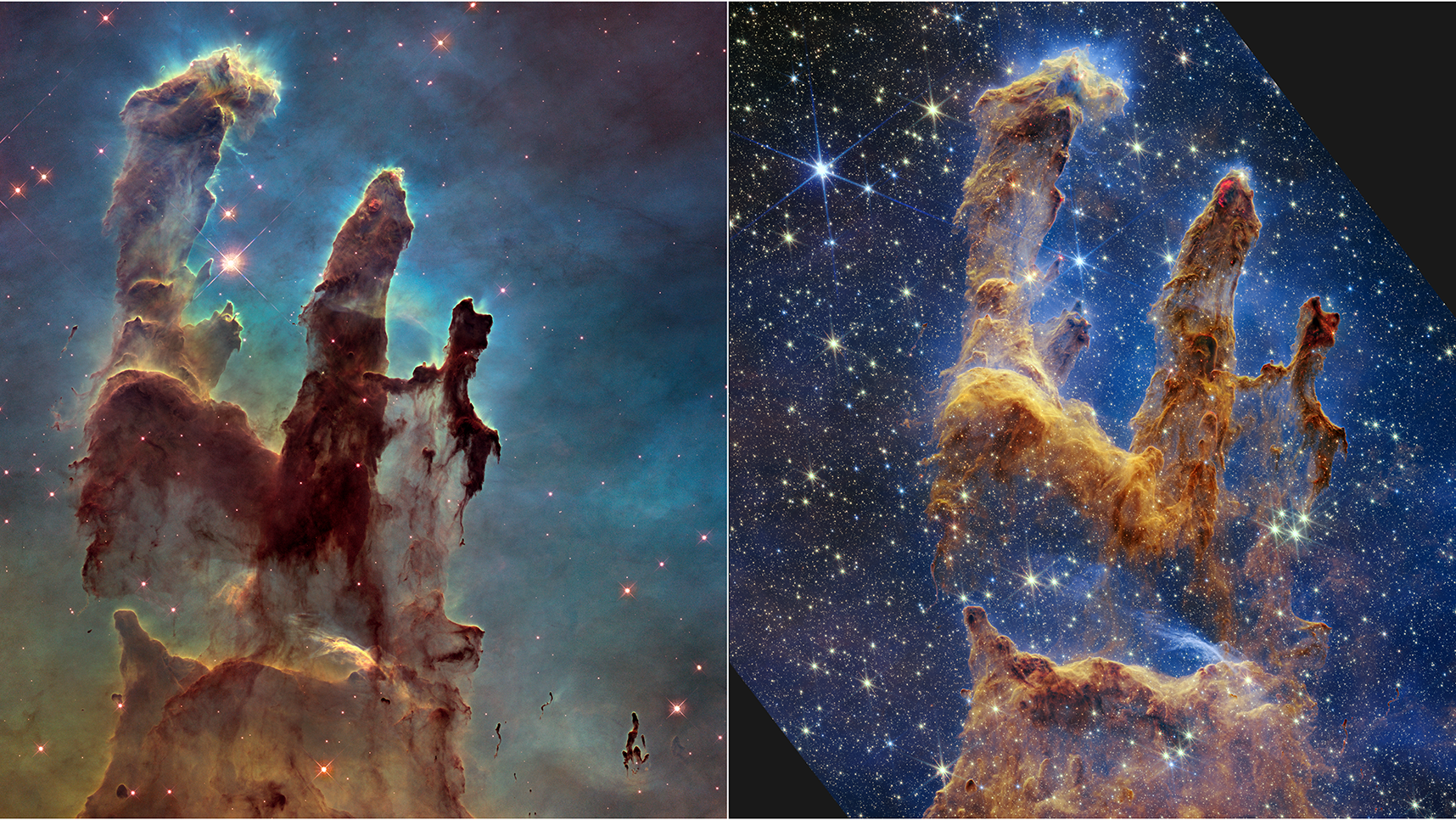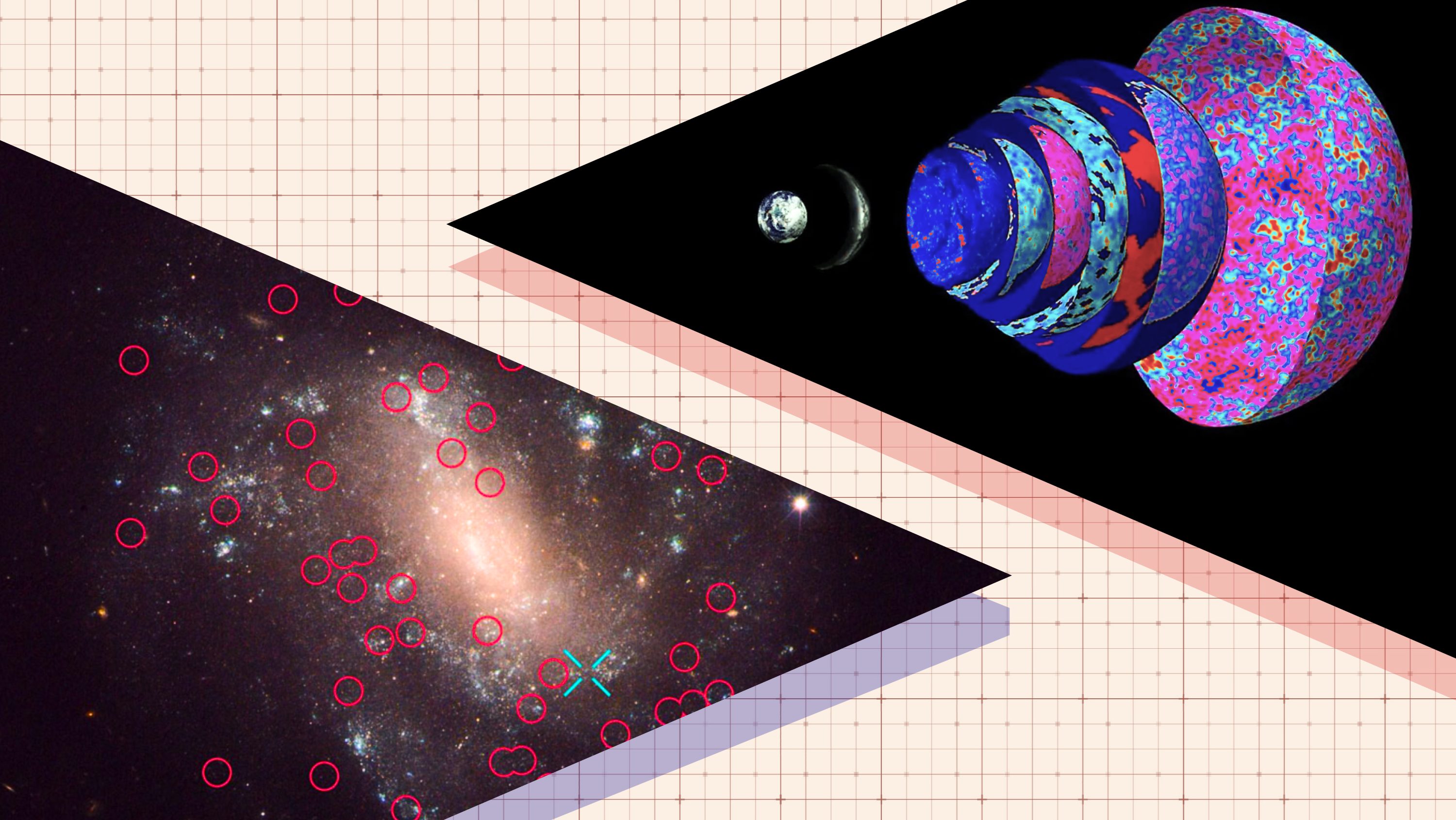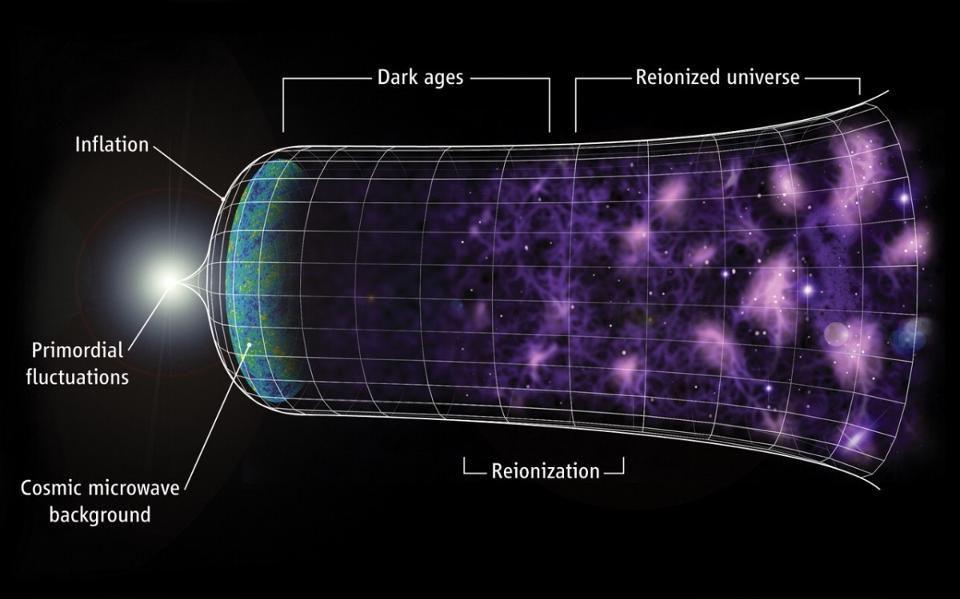Ask Ethan: Why don’t you look like a scientist?
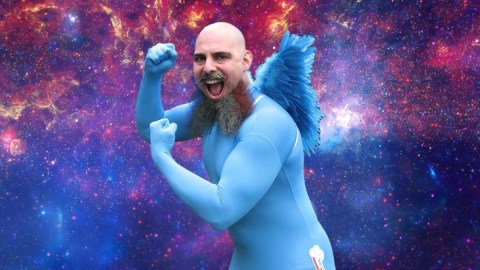
And why you shouldn’t even be asking a question like that.
“If we cannot now end our differences, at least we can help make the world safe for diversity.” –John F. Kennedy
If you’re the kind of person who doesn’t like it when people defy your expectations, or if you’re a fan of judging a book exclusively by its cover, you might be tempted to question whether someone is qualified to do what they do based solely on their appearance. Even if someone proves themselves by doing a quality job within their area of expertise, you might admonish them, either privately or publicly, for not conforming to your expectations of what they ought to be. Such was the case with this week’s Ask Ethan, courtesy of Abdul Basit Khakwany via Facebook, who asked:
Why do you, Mr. Ethan Siegel … look quite odd and non-serious, whereas you are a great scientific intellectual? A fly might enter your mouth.
As you can tell by my photo atop the page, or by my Facebook profile photo (below), I don’t exactly conform to the stereotype of how a scientist ought to look.

For a very long time, it’s been presumed that scientists will look serious and professional. Other stereotypes come along with that: a scientist should be clean-cut, perhaps absent-minded but well within the mainstream, and also should be either white or asian and definitely male. If you don’t believe me, have a look at perhaps the most famous “scientist photo” of all-time: of the 1927 Solvay conference, where the biggest names in science — from Einstein to Lorentz, from Schrödinger to Pauli, Ehrenfest, de Broglie, Planck Heisenberg, Bohr and Dirac — were all present.
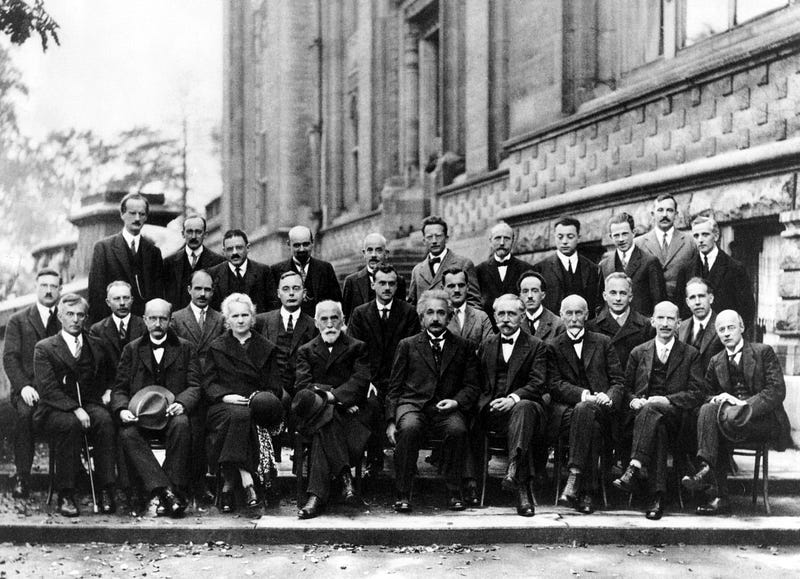
The savvy among you will notice Marie Curie, the lone exception to the “male” part of the stereotype above. This has continued for a long time, as if you take a look at the most iconic images of what we associate most closely with scientists — NASA astronauts and mission control — they had a very similar image in the 1960s and 70s at the height of the space program.
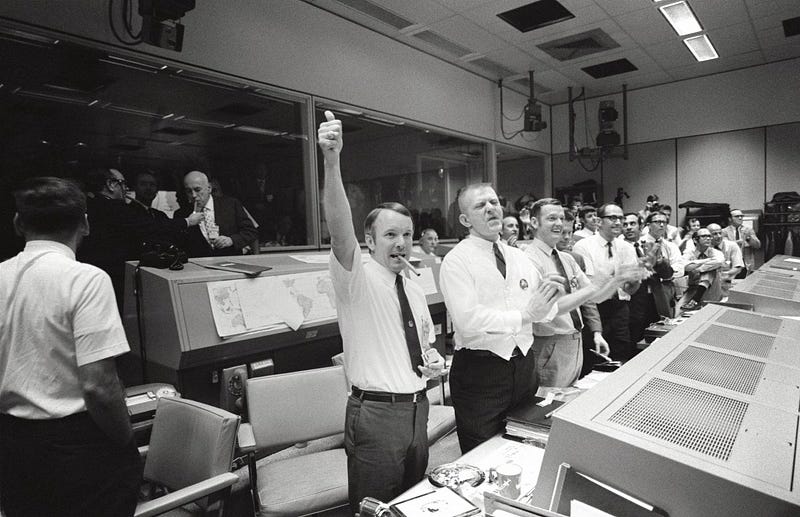
While times have changed, styles have changed, and even as the demographic composition of scientists change — in terms of religion, race, age and gender — some stereotypes die hard, too. And it’s made even worse when you consider that despite a large number of high-profile scientists that don’t fit that traditional mold, there are an even larger number of ones who do. Especially in fields like physics, mathematics, engineering and computer science, the stereotype that scientists are predominantly serious, professional, white men is one that persists to the present day.
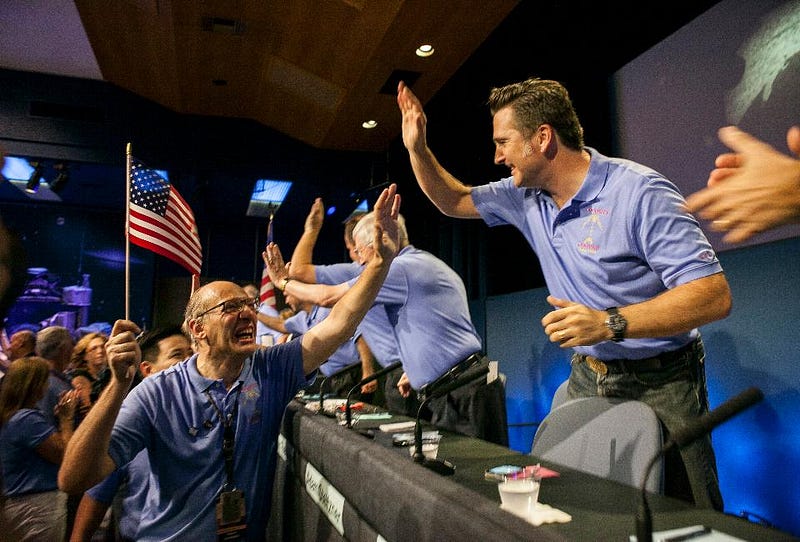
This is not to say there’s anything wrong with being professional, with being serious, with being white or being a man. Many scientists are, and in fact it’s quite likely that a plurality of active scientists today are all those things combined: more than any other combination. But none of it, none of these superficial or personality traits, in any way impact the capacity of your mind or what you’re able to accomplish with it.
George Gamow was one of the silliest people ever to live, and yet one of the greatest scientists of all time, having conceived of the Big Bang Theory. Paul Erdős was one of the least professional people ever — basically couchsurfing across academia while high on LSD and/or amphetamines for most of his life — and yet was perhaps the most prolific mathematician of the 20th century. (His colleague, Alfréd Rényi, once said of him, “a mathematician is a machine for turning coffee into theorems.”) In a great many ways, it’s difficult to be a non-conformist, as not only the public but even your colleagues tend to take you less seriously if you don’t match the picture they have in their head of what a “good scientist” is. That’s to not even scratch the surface of the everyday sexism and racism that women, blacks and latinos face for pursuing careers and fields that they aren’t traditionally expected to participate in. Even something as relatively mundane (as far as out-of-the-box goes) as having a non-conformist hairstyle is still enough to attract national attention at times.
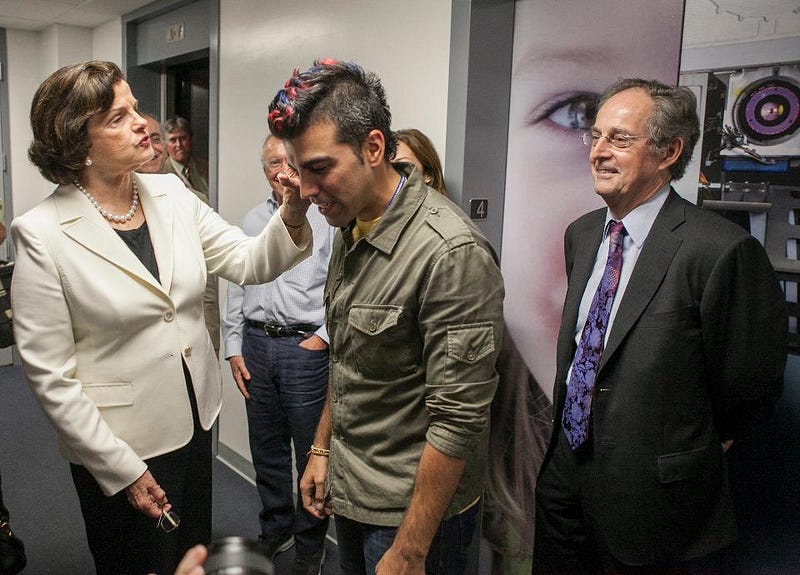
This is one of the most important lessons to learn — about science and about life — that no science class teaches you: what you’re intellectually capable of has absolutely nothing to do with whether others judge you to be odd, non-serious, or in possession of any quirks or traits (physical, personality or otherwise) save for your actual aptitude itself. You are not obliged to like it when someone appears odd to you, or not serious, or unprofessional, among other things. But you are obliged, as a decent human being, to judge them based on the content of their output and the quality of what they produce, and not on whether you approve of their appearance or not.
Moreover, it’s important, for the sake of your own life and happiness, to be yourself and to feel free to express yourself as you truly are. Whatever stereotype there is that people expect you to be (in my case, of a scientific intellectual) will certainly be around, and there will always be people who judge you negatively for not conforming. But the disdain of a few — who don’t really matter, in the end — is far better than being inauthentic to yourself. So, Abdul, to answer your question, I appear odd and non-serious to you because that is part of who I am, and that is how I am comfortable presenting myself to the world. I am quite content with owning that completely, and I’m prepared for whatever judgment you and the world has to dole out to me for being myself. But on behalf of everyone who has ever lived, who’s ever been told they weren’t normal in any way, who ever dreamed of being something besides what others would choose for them, I hope if you disapprove of me, it’s because you don’t like the quality of what I do and for no other reason.
As for the possibility of a fly entering my mouth? Well, what life is worth living without a little risk?
Submit your Ask Ethan considerations to ethan dot siegel at gmail dot com.
This post first appeared at Forbes. Leave your comments on our forum, check out our first book: Beyond The Galaxy, and support our Patreon campaign!
